Iranian Political Prisoner Dies On Hunger Strike
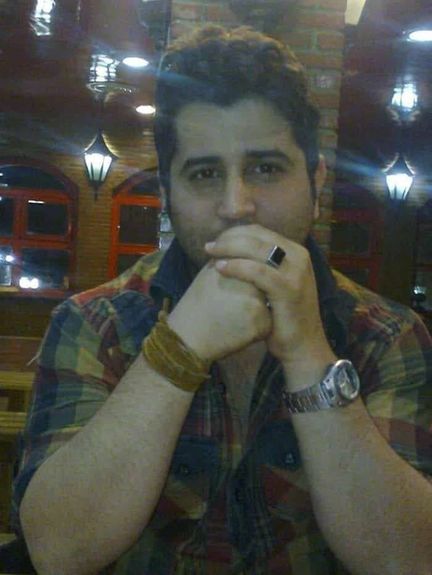
An young Iranian political prisoner, Adel Kianpour, who was on hunger strike to demand a fair trial for about a week has died in detention in southern Iran.

An young Iranian political prisoner, Adel Kianpour, who was on hunger strike to demand a fair trial for about a week has died in detention in southern Iran.
According to Ahvaz human rights group on Sunday, Kianpour died in the Sheiban prison in the southwestern city of Ahvaz in Khuzestan province on Saturday night due to complications caused by the hunger strike without receiving any medical care. He had embarked on an open-ended strike on December 25 in protest to vague charges brought against him, saying he was deprived from his basic rights, including being held in the political ward.He was denied the right to have a lawyer during his interrogations after he was arrested in August 2020 upon return to Iran.He was given a three-year sentence on charges of “spreading propaganda against the regime”, “propaganda in favor of opposition groups” and “disturbing public opinion with the intention of disrupting national security.” It is not clear why he was arretsed initially.In an audio message to the head of Iran’s Judiciary, Gholam-Hossein Mohseni-Eje'I, which was released from prison, he had asked the chief justice, “You said that anyone with security issues who lives abroad should return to Iran and we will help him return to life. Did you mean life in prison?”
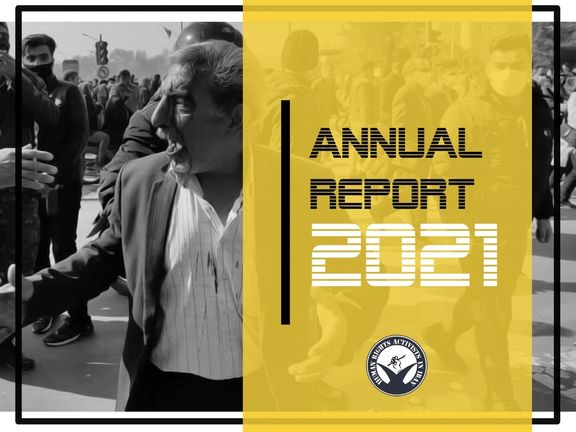
An Iranian human rights monitoring group based abroad has reported over 2,300 protest rallies in the country in 2021, with most events related to labor issues.
Unofficial labor unions organized 1,261 rallies across the country from January 1-December 20, and workers in specific workplaces or sectors held 618 protest gatherings, Human Rights Activists News Agency said in an annual report published on Monday, December 27.
Iran executed 299 individuals in 2021, including four juvenile offenders - a 26-percent increase compared with 2020. Courts issued 85 death sentences until December 20.
Military forces shot 242 people, killing 94 individuals, some during protests and others who were small-time cross border traders essentially smuggling consumer goods between Iraq and Iran or fuel to Pakistan.
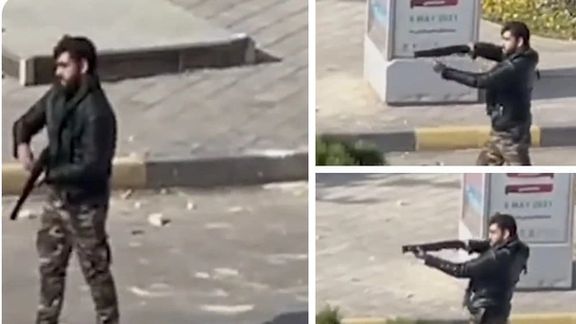
The report also covers ethnic and religious minorities, freedom of expression, the death penalty, women’s rights and other areas of human rights violations.
A lot of the information comes from sources inside Iran who cooperate with human rights monitors abroad and from government-controlled media that reports on labor protests but is mostly silent on prisoners and detentions. This kind of news comes from family members, lawyers and activists in Iran, often via social media.
The report also details the geographic location of reports in Iran, categorizing provinces with the number of human rights violation or protests that are often met with the forceful intervention of security forces.
Based on various types of reports, there were 390 violations of ethnic minority rights in 2021 registered by the Human Rights Activists in Iran (HRA). For religious minorities 144 cases were registered, including 57 arrests and 60 cases of police raiding homes. Still arrests of members of religious minorities decreased by 25 percent in 2021 compared with the previous year.
Members of the Baha’i faith suffered most with 72 percent of violations directed at the persecuted group. Persecution of newly c

onverted Christians constituted 14 percent of all violations.
Muslims are not allowed to convert to another religion. Most cases of conversion in Iran involve Muslims adopting Christianity and holding secret congregations at homes, which are raided if security forces get tipped off.
There were 674 reports of violations against freedom of expression in 2021, including the arrest of 1,043 individuals, with 111 trials held. In 2021, prison terms were issued for 215 people, totaling 10,140 months on accusations of “propaganda against the regime” and similar charges that would be incomprehensible in a modern society. Criticism of Supreme Leader Ali Khamenei, the military and the clergy usually trigger arrest and heavy punishment including lashing. This year, 16 people received a total of 998 lashes.
Authorities arrested 1,676 individuals because of political or civil-rights advocacy activities. “The statistical analysis exhibited 26 cases of arrest in the trade union category, 445 arrests in the category of ethnic minorities, 57 arrests in the category of religious minorities, 1043 arrests in the category of freedom of expression, 25 arrests related to children’s rights, 3 arrests of students related to the right to education, 6 arrests in the field of cultural rights, and 64 arrests in the category of workers’ rights,” the report said.
The report says that 575 cases of prisoner abuse were registered, including 232 cases of officials denying prisoners medical care and 68 cases of prisoners being deprived of lawyers.
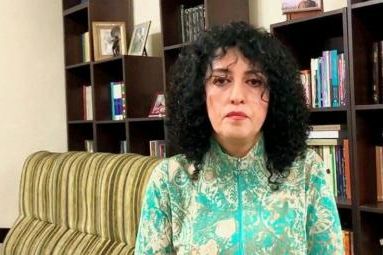
Twitter users have started a campaign to protest the detention of Iranian rights activist Narges Mohammadi as she is being held in solitary confinement for 42 days.
Her husband, Taghi Rahmani, said in a tweetthat she is being interrogated since November 24, adding that espionage for Saudi Arabia has been added to her charges.
Mohammadi, who has been arrested several times in the past, was detained again in mid-November this year at the death anniversary of a citizen, Ebrahim Ketabdar, who was shot dead by security forces during the November 2019 protests.
Cofounder and chair of the Defenders of Human Rights Center, Mohammadi has been to jail several times over the past two decades. She was freed from Evin Prison in September 2020 after serving five and half years on trumped up charges, without due process of law.
She was detained twice before this year, once for participating in a rally in front of the interior ministry during week-long water protests in Khuzestan and again at an anti-Taliban rally outside the Pakistan embassy in Tehran in September. She was freed both times after a few hours.
In March, the chairman of Amnesty International in Norway announced that two members of the Norwegian parliament have nominated the Iranian human rights activist for the Nobel Peace Prize.

An American academic who was imprisoned in Iran for 1,216 days is suing Princeton University, saying they sent him to study and then left him there without any support.
Xiyue Wang says the university officials did not help him, and even tried to keep his wife from publicizing his case following his arrest on bogus charges of spying for the United States.
Princeton lawyers and administrators urged him not to seek refuge in the Swiss embassy in Tehran after he began to fear for his safety so that the university could maintain its political relations with Iran, Wang alleges in his lawsuit.
He has identified Princeton scholar Seyyed Hossein Mousavian, who is sympathetic to the Iranian regime, claiming that he stymied efforts to free him from prison.
Mousavian – now a visiting research scholar at Princeton, was Tehran’s ambassador to Germany when four Iranian dissidents were assassinated at Berlin's Mykonos restaurant in 1992.
He served in a variety of positions Iranian diplomatic position. He attended the funeral service of Qasem Soleimani, the IRGC commander who was killed by American forces last year.
Xiyue Wang was arrested in Iran in August 2016 and sentenced to 10 years in the notorious Evin Prison. He was freed in December 2019 in exchange for Iranian scientist Masoud Soleimani, who was imprisoned in the US, for attempting to export biological materials to Iran without authorization.
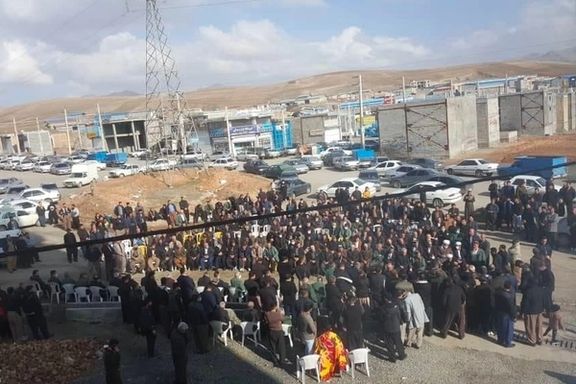
Residents in the small town of Kamyaran gathered to protest the execution of Heydar Qorbani, a Kurdish political prisoner who was hanged at dawn on Sunday.
Hundreds of protesters gathered outside his home chanting “A martyr never dies”, according to a video published by a human rights monitoring group.
Earlier, hundreds of people in Kamyaran had signed a letter addressed to Supreme Leader Ali Khamenei asking him to commute Qorbani’s death sentence.
He was arrested in October 2016 after several members of the Islamic Revolutionary Guard Corps (IRGC) were killed close to Kamyaran.
Among the charges against him were the murder of three IRGC members and "taking up arms against the state" through membership in the Kurdistan Democratic Party of Iran (KDPI), an armed opposition group. During his trial, he had rejected any connection with any political party, carrying arms, and involvement in the killings.
The government has intensified arrests and disappearances of Kurdish citizens and activists in recent months.
A human rights group has published an audio recording in which Qorbani talks about his torture in prison, including hanging from the ceiling while his head is put into a plastic bag.
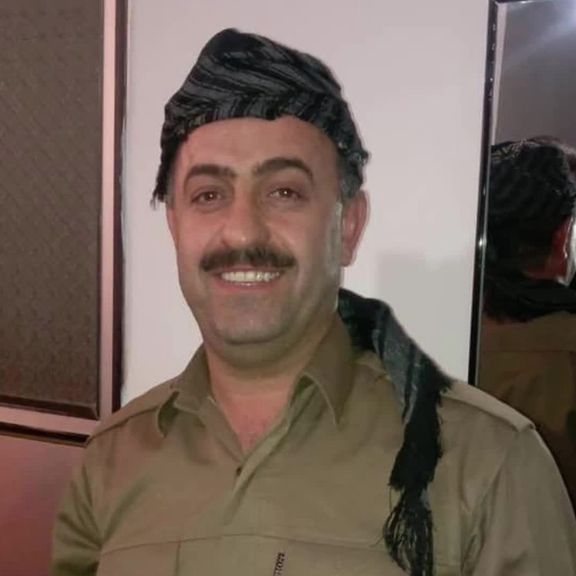
The Islamic Republic has executed Heydar Qorbani, a Kurdish political prisoner Sunday after appeals by the public and rights organizations failed to save his life.
According to Kurdisatn province justice department, Qorbani was executed at dawn on December 19, in Sanandaj prison after years of contention between human rights activists and Iran’s hardline Judiciary.
Qorbani had been arrested back in October 2016 after several members of the Islamic Revolutionary Guard Corps (IRGC) were killed close to his hometown, the small city of Kamyaran.
Among the charges laid against him were the murder of three IRGC members and "taking up arms against the state" through membership in the Kurdistan Democratic Party of Iran (KDPI), an armed opposition group. During his trial, he had rejected any connection with any political party, carrying arms, and involvement in the killings.
The government has intensified arrests and disappearances of Kurdish citizens and activists in recent months.
In 2018, the Iranian state-run Press TV aired by Qorbani for being an accessory to murder, and late in 2019, he was given the death sentence as well as a total of 90 years in jail plus 200 lashes.
However, according to his lawyer and Amnesty International his tainted confessions were obtained under torture, and he was not given a fair trial.